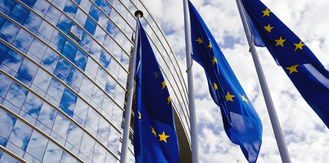The previous provisions on EU VAT rates were almost 30 years old. It had been clear for a long time that they were in need of modernization. In particular, the issues of the digital economy and climate change have hardly been taken into account to date. The lack of flexibility in the regulations was also criticized. In many cases, the agreement of all member states was required if individual member states considered it necessary to promote certain sectors of the economy in their country and wanted to grant a reduced tax rate for services. Historical derogations for certain Member States also led to unequal treatment: While some Member States were allowed to apply reduced or zero rates to certain supplies, others were excluded from doing so for the same type of supply.
 © unsplash
© unsplashPreviously, a standard VAT rate of at least 15% applied to all goods and services within the EU. Member states were also able to apply one or two reduced rates of at least 5% to clearly defined goods and services.
Reform considerations of the EU Commission
Updating the regulations in the VAT action plan announced in 2016 was on the EU Commission's agenda for the first time. A proposal presented at the beginning of 2018 then included the abolition of the list of reduced rates and the introduction of a negative list of goods to which no reduced rates may be applied (e.g. alcohol, tobacco, weapons). This would have given the member states greater leeway in setting VAT rates. The idea of sustainability was not a priority at the time.
Directive takes sustainability into account
The directive that has now been issued is based on a draft by the EU finance ministers in the Economic and Financial Affairs Council (ECOFIN) on 7 December 2021, which deviated from the European Commission's proposal and introduced completely new motives into European VAT law. The Council explicitly justified its draft directive with the objectives of climate protection and public health protection. It planned to specifically amend the list of goods and services to which reduced rates can be applied (Annex III of the VAT Directive) in this regard.
In the draft directive, the Council assumed that the legal framework for reduced rates must be coherent with other EU measures and took up initiatives in the area of health protection and tackling climate change. Here, the Council relied in particular on the "EU4Health program" (EU Regulation 2021/522) and the concept of a "Green Deal" presented by the EU Commission on 11 December 2019.
The ECOFIN Council's considerations have now been implemented in the Directive amending the EU VAT rates of 5 April 2022. The previous system of a standard VAT rate of 15% and up to two reduced VAT rates of at least 5% has been retained, although these may only be applied to 24 of the 29 services listed in Annex III. The list of goods and services to which reduced rates can be applied will be adapted to the EU's climate protection and public health objectives.
From 2030 at the latest, Member States must levy the standard rate of 15% on fossil fuels, natural gas, firewood, etc. Reduced tax rates on chemical pesticides and fertilizers are also to be abolished from 2032 at the latest. Instead, tax rate reductions and/or exemptions will be made possible for the following services:
- Medical protective equipment,
- respiratory masks,
- necessary aids for people with disabilities,
- digital services such as internet access and live streaming of cultural or sporting events,
(e-)bicycles, - ecological heating systems and solar panels that are installed in private households and public buildings and can have a positive impact on climate protection.
In addition, a provision is planned that will allow Member States to quickly introduce tax exemptions on benefits to disaster victims in crisis situations (e.g. pandemics and natural disasters). In this way, the directive not only enables member states to react flexibly to the challenges of climate change, but also provides them with opportunities to promote ecologically sound behavior among EU citizens.
Room for maneuver for the new federal government
The new directive came into force on 6 April 2022. This creates the basis for implementation in national VAT law. In view of the new federal government's plans as set out in the coalition agreement, many of the planned regulations are also likely to be incorporated into German VAT law.





